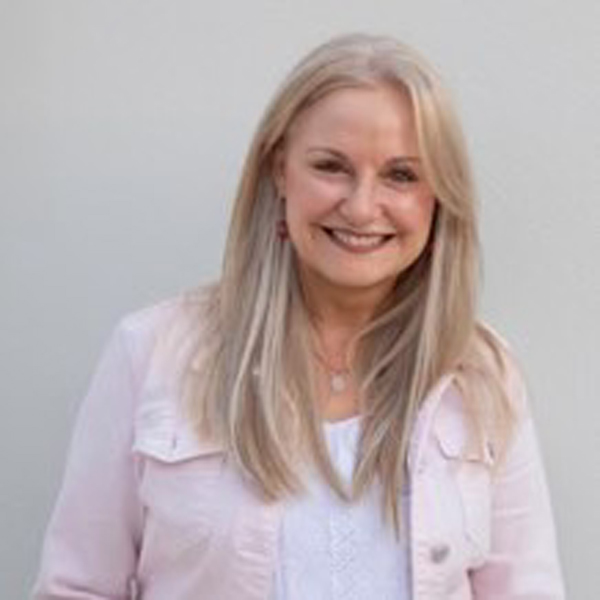Anne
Unlocking the Wisdom of Anxiety
Emotions are not inherently good or bad, they exist to tell us something.
When was the last time your heart raced, and your mind couldn’t focus because you were consumed by anxiety? Was it after someone was mean to you, or when you accidentally replied-all to an email about your co-worker’s operation?
And sure, it’s easy to say, ‘don’t worry, be happy’ but it’s a bit harder to actually do when you’re lying in bed at night, feeling the weight of the world on your shoulders. I mean, have you seen the news lately? It’s enough to make anyone skol the communion wine.
The weight of guilt and shame can crush us when anxiety takes over, especially if we’ve been led to believe it’s not normal to be anxious. We should never feel anxious if we trust in God, right? But wait a minute, does that mean biblical heroes like King David, Job, Paul, and Jesus all failed to trust God?
In Corinthians 11:28, the apostle Paul writes about how he faced anxiety and pressure., “Besides everything else, I face daily the pressure of my concern for all the churches.” This scripture reminds me of how much I worried about my kids: their safety, health, well-being, school, friendships, and future. Relentless anxiety can lead a parent to feel like they need to be constantly vigilant. The problem is we can’t protect our kids from every problem or danger which can lead to feelings of guilt for not doing enough.
Psalm 38:8 is like David’s personal diary entry. He’s feeble, utterly crushed, and groaning in anguish of heart. It’s like your worst day, but way worse. What’s causing David’s emotional turmoil? He was worried that he’d messed up so badly that he had lost God’s love, favour, and protection. Have you ever made a mistake so huge that you felt there was no way to undo the damage? The kind of mistake that keeps you up at night, worrying about how others might judge you and whether God could ever forgive you? It’s like we’re all members of the ‘I messed up big time’ club, and David is our King.
Except we can never disappoint God. He is the Alpha and Omega, knowing the beginning and the end. Disappointment comes when our expectations are not met. God is never surprised at our actions because He knew exactly what we would do before we were even born. Rather than being disappointed with us, He loves us just the way we are.
It’s a heavy burden to bear, feeling like we’re not allowed to be anxious. But the truth is, anxiety is a part of the human experience, and we need to learn to extend grace to ourselves when it strikes.
You might be saying yes, well these Christians in the bible were anxious because they weren’t trusting God. But didn’t the Son of God experience extreme anxiety in the Garden of Gethsemane? Jesus was “sorrowful and troubled” and asked his disciples to stay with him and keep watch while he prayed (Mark 14:33-34). He was facing the prospect of his impending arrest, trial, and crucifixion.
On the night before His crucifixion, Jesus experienced deep anxiety about what was to come. As it says in Luke 22:44, “And being in anguish, he prayed more earnestly, and his sweat was like drops of blood falling to the ground.”
Jesus shows us that it is ok to be scared. It’s ok to be worried about what the future might hold. So, the next time someone tells you that you shouldn’t feel anxious if you love God, just remind them that even the heroes of the faith had their fair share of anxious moments.
Anxiety is God-given.
Emotions are not inherently good or bad, they exist to tell us something. Often, anxiety tells us to be aware of potential dangers. It’s alright to be frightened if it makes us cautious, makes us wise, makes us curious.
As Keith Hoeller says in the book Readings in Existential Psychiatry, “Anxiety points us to an underlying message.” Sometimes anxiety and stress are a clue that you’re not living congruently. When we live in a way that goes against our values, we can feel a sense of unease that lingers in the background of our soul. For example, a person who highly values honesty but finds themselves being deceitful in their daily interactions with others. Or a person who values family and connection but spends most of their time working long hours and neglecting their relationships.
When we feel uncertain, anxiety may indicate that we need to plan or seek more information to increase our sense of security. When we feel overwhelmed, anxiety can remind us to prioritise self-care or cut back on our schedule.
Anxiety is a clue to unexpressed emotions, normally anger or sadness, and may signal that we need to take action to assert ourselves or regain control in a situation. When we doubt our self-worth, anxiety can serve as a message that we need to work on building our self-esteem. Or anxiety may be telling us to ask for help when we don’t have enough emotional or physical resources to manage on our own.
Sometimes I feel like anxiety is God sending me a cryptic text message, a harbinger of the need for change or clarity. Sometimes we’re just living in the wrong place. We get a feeling we aren’t doing the thing that rings true for us. For example, I might order the chicken and realise once the waiter has left that I really wanted the steak, which is no big deal. But what if the stakes are higher. I remember deciding between buying a house or an apartment, I finally settled on the house. But then I started feeling really anxious. It hit me – I’m living in the wrong place. Sometimes it’s not until we’ve made a decision, that we realise we need to make a different choice. Of course, if I still feel anxious after switching to the apartment, I may need medicating.
I often tell people ruminating on anxious thoughts, that they have a possibilities brain. The possibilities brain can sometimes run wild with all the potential scenarios that could occur in a given situation, including worst-case scenarios that may never actually happen. While an overactive possibilities brain can be a source of anxious thoughts, it can also be a powerful tool for creativity and innovation. By exploring all the different possibilities and potential outcomes of a situation, we can come up with new and innovative ideas that we may not have considered otherwise. So rather than trying to get rid of our possibilities brain, we can learn to manage and harness it in a way that benefits us and helps us achieve our goals.
It’s all about how we sit with our thoughts and feelings and listen for anxiety’s wisdom.
It is normal to feel stressed, and it is comforting to know that God doesn’t want us to face our struggles alone. In Philippians 4:6-7, it says, “Do not be anxious about anything, but in every situation, by prayer and petition, with thanksgiving, present your requests to God. And the peace of God, which transcends all understanding, will guard your hearts and your minds in Christ Jesus.” It’s important to not interpret this scripture as a condemnation of our faith when we feel anxious. Instead, we should view it as an encouragement that anxiety is a common experience that we all face.
Anxiety has something to tell us. Anxiety is welcome, it’s not forbidden. Anxiety doesn’t make you ungodly. Anxiety doesn’t mean you don’t have faith. God is interested in you, so ask Him to help you work out what the anxious feeling might be trying to say and restore peace to your soul.
If you need help working out what your anxiety is saying, please contact the Eastlake office and ask to speak to the pastoral team. If anxiety is getting in the way of you living your best life, it’s a good idea to talk to someone who can help you identify the root cause of your worries. By unpacking what’s really going on behind your anxious thoughts, a trained pastor or therapist can help you develop effective strategies to manage your anxiety and get back to living the life you want.

Anne
Clinical Psychologist, University Lecturer – B.Couns; Grad.Dip.Psych; BScHons; MPsychClin
Anne Galambosi is a Perth clinical psychologist, life coach, speaker, uni lecturer, business owner, wife, mother and grandmother. Co-founder of Change Your Story, Anne sees the need for leaders to grow in emotional intelligence whilst sustaining resilience. Leaders often seek out Anne for her knowledge and gift of insight. For many years she has coached leaders to unlock keys that transform culture, tap into the emotional energy, and ‘read the play’.

